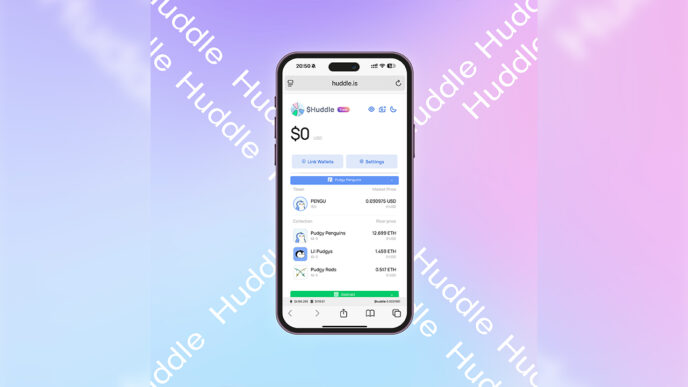So, you’ve probably heard about the big legal fight between Epic Games and Google. It’s been a long time coming, and honestly, it’s a pretty big deal for anyone who uses apps on their phone. This whole thing, often called the epic vs google battle, is all about how apps get to your device and who makes money from them. We’re going to break down what went down, what it means, and why you should care.
Key Takeaways
- A jury decided Google acted like a monopoly with its app store on Android.
- This ruling might give app makers more power over how their apps are sold and how much they earn.
- Google plans to fight the decision, so this isn’t over yet.
- Epic Games had a similar case against Apple, but that one turned out differently.
- The outcome could change how apps work on Android phones and how Google makes money from them.
The Core Allegations Against Google
Google found itself in hot water, facing some serious accusations during the Epic trial. It wasn’t just one thing, but a whole bunch of practices that Epic claimed were unfair and anti-competitive. Let’s break down the main points:
Monopolistic Practices in App Distribution
Epic argued that Google was using its power to control how apps get onto Android devices. They claimed Google wasn’t playing fair by making it super hard for other app stores to compete with the Google Play Store. It’s like Google built a walled garden and didn’t want anyone else planting seeds there. Google’s agreements with device manufacturers were also under scrutiny, with allegations that these agreements heavily incentivized manufacturers to favor Google and not compete with them.
Tying Play Store and Billing Services
This is where things get a little technical. Epic said Google was "tying" the Google Play Store to Google Play Billing. Basically, if you wanted to be in the Play Store, you had to use Google’s billing system. Epic argued this was a sneaky way for Google to take a cut of all in-app purchases and stifle competition. The jury agreed that this tying arrangement was unlawful.
Systematic Blocking of Alternative App Stores
Epic accused Google of actively blocking other app stores from gaining traction on Android. It wasn’t just about making it difficult; Epic suggested Google was actively sabotaging the competition. This included allegations that Google was deleting texts and internal messages to hide their behavior. Think of it as Google trying to sweep the evidence under the rug. The claim was that Google “systematically blocks” alternative app stores on the company’s Play store.
Google’s Defense and Counterarguments
Intense Competition with Apple
Google has consistently argued that it faces intense competition, primarily from Apple. They point out that Android and iOS are the two dominant mobile operating systems, and users have a real choice between them. Google claims this competition keeps them on their toes, forcing them to innovate and offer competitive services. They suggest that any actions taken were to better compete with Apple, not to stifle competition within the Android ecosystem itself. It’s a tough market out there, and they’re just trying to stay afloat, or so they say.
Lowering Fees to Compete
In response to pressure and to stay competitive, Google has highlighted instances where they lowered fees for developers. This was presented as evidence that they are responsive to market demands and not abusing a monopoly position. They might point to programs that reduce the service fee for smaller developers or offer incentives for developers to use the Play Store. It’s all about attracting and retaining talent, you know? Here’s a quick look at how fees changed over time:
| Time Period | Standard Fee | Reduced Fee Program |
|---|---|---|
| 2018 | 30% | N/A |
| 2021 | 30% | 15% for first $1M |
| 2023 | 15% | Various tiers |
Denial of Wrongdoing
Throughout the legal battle, Google has maintained a firm stance, denying any anti-competitive behavior. They argue that their policies are designed to protect users from malware and ensure a consistent experience across Android devices. They claim that the EU is re-evaluating its regulatory oversight, and that their actions are justified for security and economic reasons. Google also suggests that Epic’s claims are an attempt to bypass the established app distribution model and avoid paying service fees. They frame the issue as Epic wanting a free ride on the Google Play Store’s infrastructure and user base. Google’s defense boils down to these key points:
- No anti-competitive intent.
- Actions taken were to improve user experience and security.
- Epic is trying to avoid fair compensation for services.
The Landmark Verdict and Its Implications
Jury Finds Google Guilty of Monopoly
Wow, what a turn of events! After weeks of testimony and evidence, the jury sided with Epic Games, finding that Google did indeed operate an illegal monopoly with its Google Play Store. It’s a pretty big deal. The jury decided that Google was using its power to stifle competition and hurt both developers and consumers. This is a major win for Epic, who have been fighting this battle for a while now. It’s not every day that a tech giant like Google gets hit with an antitrust verdict. This could really shake things up in the app store world. The jury’s ruling was pretty clear.
Potential for Developer Empowerment
So, what does this mean for developers? Well, potentially a lot. If this verdict holds up, it could pave the way for developers to have more control over how they distribute their apps and how they process payments. For years, developers have complained about the high fees and restrictive policies of the Google Play Store. This ruling could force Google to loosen its grip and allow for more competition. Imagine a world where developers can offer their apps directly to consumers, bypassing the Play Store altogether, or using alternative payment systems. That’s the kind of future this verdict could bring. Here’s a quick look at some potential benefits:
- Lower fees for developers
- More control over app distribution
- Increased innovation and competition
Google’s Plan to Appeal
Don’t expect Google to just roll over, though. They’ve already announced their intention to appeal the verdict. Google argues that the Play Store is just one of many ways for Android users to get apps, and that they face plenty of competition from other app stores and direct downloads. They’ll likely argue that the jury didn’t fully understand the complexities of the Android ecosystem and that their policies are necessary to ensure security and quality. It’s going to be a long and complicated legal battle, and it’s far from over. The antitrust success in US courts is encouraging, but the legal process can be lengthy. The definition of relevant markets is always a challenge.
Comparing Epic’s Battles: Google Versus Apple
It’s interesting to see how Epic went after both Google and Apple with similar lawsuits, but the outcomes were quite different. Let’s break down why Epic won against Google but didn’t have the same success against Apple. It really comes down to a few key things.
Key Differences in Court Rulings
One of the biggest differences is who made the decision. In the Google case, it was a judge, while the Apple case was decided by a jury. I’m no legal expert, but it seems like that can make a big difference in how the evidence is interpreted. Juries can be unpredictable, and sometimes, the legal arguments that sway a judge don’t resonate as well with a group of everyday people. It’s also worth noting that Apple’s anti-steering restrictions were deemed problematic, even though they weren’t found to be a monopoly.
Defining the Relevant Market
This is where things get really interesting. The court in the Google case accepted the Android app distribution market as its own thing, a "relevant market." But in the Apple case, the court didn’t buy that argument. They didn’t see the Apple app distribution market as separate. This difference in how the market was defined had a huge impact on the outcomes. If you can’t define the market, it’s hard to prove someone has a monopoly in it. Epic’s core argument revolved around the idea that both Google and Apple had a stranglehold on their respective app stores, preventing competition and innovation. Epic wanted freedom for app developers to have their own app stores, without being forced to use Android Play Store and Apple App store.
Outcomes of Similar Lawsuits
It’s also worth remembering that these aren’t the only antitrust cases out there. There have been settlements with other developers, and there’s a lot of global regulatory scrutiny on these big tech companies. It’s all part of a bigger fight for fair competition in the app market. Epic’s lawsuits, regardless of the outcomes, have definitely put a spotlight on these issues and pushed the conversation forward. Here are some key takeaways:
- Epic’s loss against Apple doesn’t mean the fight is over.
- The Google victory is a big deal for developers.
- The definition of the market is crucial in these cases.
Impact on the Android Ecosystem
The Epic vs. Google case is a big deal, and it’s going to shake things up for Android users and developers. It’s not just about Fortnite anymore; it’s about how apps get onto our phones and who controls that process. The verdict could lead to some pretty significant changes in how the Android ecosystem works. Google’s dominance has been challenged, and that could mean more choices and different experiences for everyone.
Future of App Store Rules
The ruling could force Google to loosen its grip on the Play Store. For years, Google has had pretty tight control over what apps are allowed and how they’re distributed. This case challenges that model. We might see Google having to play fairer with developers, allowing them to use different payment systems and reach users in new ways. It’s like opening up the walled garden a little bit. The judge ordered Google not to make deals with carriers or device makers that block preinstallation of rival app stores in exchange for money, revenue share, or perks, starting November 1st, 2024, and continuing until November 1st, 2027.
Allowing More App Stores
One of the biggest potential changes is the possibility of more app stores on Android devices. Right now, the Play Store is the main game in town, but that could change. Imagine downloading apps from different sources, each with its own rules and selection. This could lead to more innovation and competition, but it could also make things a bit more complicated for users. You might have to be more careful about where you get your apps from. If you want to delete applications from your Android device, you might have to do it from multiple locations.
Revenue Implications for Google
Obviously, if developers can bypass the Play Store and use their own payment systems, that’s going to hit Google’s bottom line. Google takes a cut of every app sale and in-app purchase made through the Play Store, and that’s a huge source of revenue. If that revenue stream shrinks, Google might have to find new ways to make money from Android. Maybe we’ll see more ads, or perhaps they’ll focus on other services. It’s hard to say for sure, but the financial impact could be significant.
The Broader Antitrust Landscape
Settlements with Other Developers
It’s not just Epic taking on the big guys. A bunch of other developers have also been raising concerns about app store policies and fees. Some have even reached settlements with companies like Google. These settlements often involve changes to the way the app stores operate, like allowing developers to use their own payment systems or reducing the commission fees that Google takes. These settlements can create a ripple effect, influencing the terms for all developers on the platform.
Global Regulatory Scrutiny
Antitrust isn’t just an American thing. Regulators all over the world are taking a closer look at big tech companies and their business practices. The EU, for example, has been very active in investigating and fining companies like Google for anti-competitive behavior. These global investigations can put even more pressure on companies to change their ways. For example, the EU’s Digital Markets Act is a big deal, setting new rules for how tech platforms operate in Europe. These rules could have a big impact on how app stores work worldwide. It’s a complex web of regulations, but here’s a simplified view:
- EU: Digital Markets Act
- US: Ongoing antitrust cases
- South Korea: Law requiring alternative payment systems
The Fight for Fair Competition
Ultimately, all these lawsuits, settlements, and regulations are part of a bigger fight for fair competition. The goal is to create a level playing field where developers of all sizes have a chance to succeed. This could mean lower fees, more flexibility in how they reach their customers, and more control over their own businesses. It’s a long and complicated process, but the Epic vs. Google case is a major step in that direction. The Sherman antitrust act is a key piece of legislation in this fight. Here are some of the things at stake:
- More innovation in the app market
- Better deals for consumers
- A more diverse app ecosystem
What Happens Next?
So, what’s the big takeaway from all this? The Epic versus Google case really shined a light on how these huge tech companies run things. It showed that even the biggest players can be challenged, and that’s a good thing for everyone. This whole situation could change how apps get to your phone and how much they cost. It’s a big deal for developers, too, because it might mean they get a fairer shake. Google is going to fight this, for sure, but the court’s decision is a clear message. We’ll have to wait and see how it all plays out, but it definitely feels like things are shifting in the app world.
Frequently Asked Questions
Who is Epic Games and why did they sue Google?
Epic Games is a video game company, famous for games like Fortnite. They sued Google because they believed Google was unfairly controlling the app market on Android phones, making it hard for other app stores to compete and forcing developers to use Google’s own payment system.
What was Google’s side of the story?
Google argued that they actually face a lot of competition, especially from Apple. They said they even lowered their fees to stay competitive and that their actions weren’t what a monopoly would do.
What did the jury decide in the Epic vs. Google case?
The jury decided that Google was indeed acting like a monopoly. This means Google might have to change how its app store works, which could give app developers more freedom and control.
How was Epic’s lawsuit against Google different from its lawsuit against Apple?
While both cases were about app store rules, Epic won against Google but largely lost against Apple. This might be because the courts looked at the “market” differently for each company, and the Google case had some strong evidence about Google blocking other app stores.
What does this decision mean for Android phones and apps?
This ruling could mean big changes for Android. Google might have to let other app stores onto Android devices more easily, and developers might get more choices for how they handle payments, which could affect Google’s earnings.
Is this just about Google, or does it affect other big tech companies?
This case is part of a bigger trend where governments and other companies are looking closely at how big tech companies operate. It shows there’s a growing push for fairer competition in the digital world, not just in the U.S. but around the globe.














